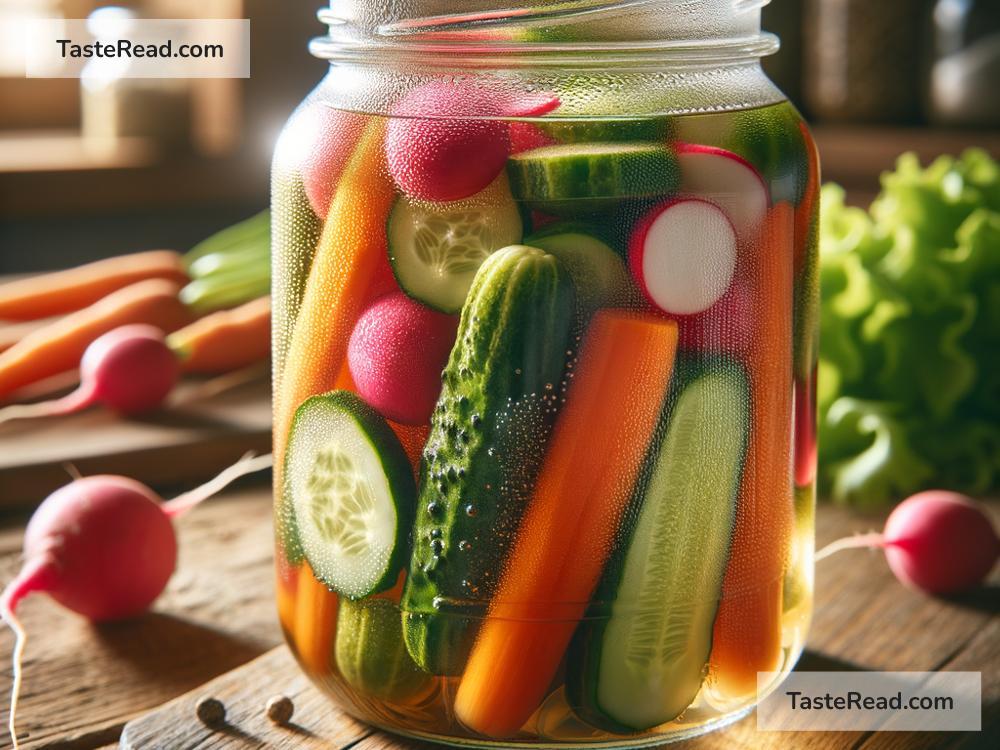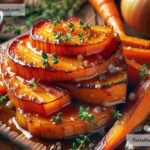Why Some Vegetables Develop Sweet Notes When Pickled
Pickling is an age-old technique that turns ordinary vegetables into tangy, flavorful treats. But have you ever noticed that some pickled vegetables seem to develop sweet notes, even if no sugar is added to the recipe? This transformation can leave your taste buds pleasantly surprised. The explanation for this phenomenon lies in the science of pickling, the natural characteristics of vegetables, and how their flavors interact during the process. Let’s dive in and explore why some vegetables develop sweet notes when pickled.
What Is Pickling?
Pickling is the process of preserving food by soaking it in a solution of vinegar, salt, or brine. It has been used for centuries to keep food fresh for long periods, especially before the invention of refrigeration. Pickling doesn’t just preserve vegetables; it also transforms their texture and flavor, creating unique and exciting taste profiles.
Depending on the recipe, pickles can be tangy, sour, salty, spicy, or even sweet. While many pickling recipes add sugar to create intentionally sweet pickles, some vegetables seem to naturally develop hints of sweetness during the process. How does this happen?
It’s All About the Flavor Chemistry
The sweetness that appears in pickled vegetables is influenced by their natural chemical makeup. Vegetables contain carbohydrates, sugars, and organic compounds that shape their raw flavor. When pickled, these elements interact with the vinegar, salt, and any spices in the brine, leading to changes in taste.
-
Natural Sugars in Vegetables:
Many vegetables have natural sugars. Carrots, beets, onions, bell peppers, and cucumbers are great examples of vegetables that contain a high amount of natural sweetness to begin with. When pickled, the acidity from the vinegar can emphasize these sugars, making the sweet notes stand out. It’s like how a squeeze of citrus can enhance the flavor of something sweet—it’s all about balance. -
Fermentation:
Some pickling recipes involve fermentation, where naturally occurring microbes convert sugars into acids, resulting in sharp, tangy flavors. Fermentation can also break down the complex carbohydrates in vegetables into simpler compounds, which may taste slightly sweet. Even though fermentation primarily increases the acidity, it can still leave behind subtle sweetness in certain vegetables. -
The Vinegar Effect:
Vinegar is one of the most common ingredients in pickling. It’s sour, yes, but its acidity interacts with the natural compounds in vegetables and can alter how we perceive flavors. Our taste buds interpret acidity differently when paired with sweetness, creating a balance that can enhance sweet notes in the final product. -
Cooking and Softer Textures:
Some pickling methods involve briefly cooking vegetables before adding them to the brine. For instance, blanching carrots or beets before pickling them can release their natural sugars. Softer textures also seem sweeter to many people because they highlight the sensation of flavor.
Vegetables That Become Sweet When Pickled
Some vegetables are particularly prone to developing sweet notes during pickling due to their natural characteristics. Here are a few examples:
-
Carrots: Carrots have a high sugar content compared to many vegetables. When pickled, their sweetness becomes more noticeable, especially when paired with the tanginess of vinegar.
-
Beets: Beets are naturally earthy and sweet. Pickling tends to amplify their warm, sweet flavors, creating a delicious balance with the acidity of the brine.
-
Onions: Red onions and even regular white onions can lose some of their harshness when pickled, revealing their sweeter side. This happens because the vinegar can neutralize the sharp sulfur compounds that give raw onions their bite.
-
Cucumbers: Cucumbers used in dill pickles can sometimes taste slightly sweet, even in recipes without added sugar. This is due to the way their natural mildness interacts with the brine.
-
Bell Peppers: These colorful vegetables already have a mild sweetness, especially when fully ripe. Pickling can brighten these sweet notes even further.
Other Factors That Influence Sweetness
There are additional reasons why vegetables might develop sweeter notes during pickling:
-
Recipe Variations: Sometimes sugar isn’t added directly, but sweet spices like cinnamon, cloves, or star anise might be used, subtly enhancing sweetness.
-
Ripeness of the Vegetables: The natural sweetness in vegetables depends on their ripeness. The riper the vegetable, the sweeter the flavors. This means choosing perfectly ripe veggies for pickling can result in sweeter-tasting pickles.
-
Time and Storage: The longer vegetables stay in the brine, the more their flavors can mellow and intermingle. Over time, the more acidic and salty flavors might recede slightly, allowing sweeter notes to shine through.
Enjoying Sweetly Pickled Vegetables
Sweetly pickled vegetables aren’t just a treat for your taste buds—they’re also incredibly versatile. Use them in salads, on sandwiches, as toppings for tacos, or simply enjoy them as a snack. Their unexpected sweetness can add depth to all kinds of dishes.
Whether you’re a seasoned pickle enthusiast or new to the world of homemade pickling, experimenting with different vegetables and recipes can lead to exciting discoveries. And the next time you savor a pickled carrot or beet and notice its sweet flavors, you’ll know the science behind the surprising twist.
Happy pickling!


